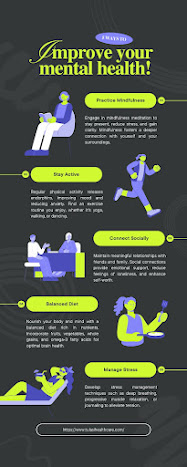The Science Behind Addiction Recovery at a Rehabilitation Centre in Delhi NCR
Addiction is a complex phenomenon that influences millions of people and families worldwide. In India, due to the escalating rates of abuse of substances, there is an increasing demand for rehabilitation services that are effective. Knowing how addiction recovery works on the scientific level will help individuals make sound decisions about seeking help from a rehabilitation centre in Delhi NCR. The blog entails the various dimensions of addiction recovery and how the evidence-based practice leads towards successful results.
Addiction is a chronic disease coupled with compulsive seeking and use of drugs despite the harmful medical, physical, psychological, and social consequences. It alters the brain's function and conduct; thus, recovery is challenging. There are multifactorial causes of addiction such as genetics, environmental factors, and psychological factors. Thus, one needs a multidimensional approach to overcome addiction, and for this, a rehabilitation center in Delhi NCR can prove to be a stepping stone.
Evidence-Based Treatments
Evidence-based treatments are interventions that have been proven through scientific tests to be effective in the treatment of addiction. These are thus an important part of any rehabilitation centre; treatments help provide a structured and supportive environment for those in recovery. Some among other evidence-based practices include:
1. Cognitive Behavioral Therapy (CBT)
This is an intensively used treatment intervention technique for patients undergoing addiction recovery. It involves the reformation of distorted or maladaptive beliefs and modes of behavior together with substance use. It fosters effective copers and solves problems, hence dealing with mental conditions like anxiety and depression.
2. Motivational Interviewing (MI)
Motivational Interviewing is a client-centered counseling style that develops ambivalence over addiction, and it motivates individuals to explore the ambivalence concerning their addiction. Such treatment helps people figure out their motivation for change, which in turn can help strengthen the commitment toward recovery. This would very well work inside the rehabilitation center in Delhi NCR because there is an open communication between the therapist and clients.
3. Medication-Assisted Treatment (MAT)
For some, medication is an essential adjunct to treatment. MAT is a combination of behavioral therapy with medications to treat substance use disorders. The antidepressants can even help curb cravings for drugs, taking away the pain that patients may feel once they are in the process of getting recovered. In a rehabilitation center, the healthcare practitioners monitor medication use strictly to be safe and effective.
The Importance of a Holistic Approach
Addiction recovery goes beyond treatment with drugs and alcohol; it is instead related to the treatment of a whole human being. A holistic approach always includes both physical, emotional, and social components to a human's life. Rehabilitation centers in Delhi NCR, to support holistically recovery, usually offer one of the following:
1. Group Therapy
Group therapy promotes confidentiality and offers an environment where people can share experiences and learn from others. It is a source of community and belonging, as recovery is never possible without one. Such therapy tends to remove a sense of isolation while imparting valuable insights from others facing similar issues.
2. Family Therapy
Not only does addiction begin to alter the individual, but it also changes the people around him. Family therapy involves the dynamics of the family unit and works on rebuilding trust and communication within the family. It is an essential part of the recovery process, as it helps provide a supportive home environment following treatment.
3. Mindfulness and Stress Management
It involves adopting mindfulness, meditation, and yoga techniques. These techniques help handle stress levels, decrease anxiety, and improve emotional states. So, rehabilitation centers within Delhi NCR would then look to introduce these techniques into their programs as a means of building overall well-being.
Aftercare and Support
Recovery is not only upon their release from the treatment center. Aftercare plays a fundamental role in maintaining sobriety for long periods of time. This might include continued sessions of counseling and therapy, or participation in support groups and regular meetings with counselors. Aftercare equips the individual to tackle the real world and reinforces the skills acquired during treatment.
Conclusion
Knowing of the science associated with the addict recovery is essential for those considering treatment. A rehabilitation center in Delhi NCR provides every remedial therapy along with holistic approaches and support systems to empower the individual toward recovery. Individuals who receive the right inputs coupled with a commitment to change can overcome addiction to lead fulfilling, sober lives. If you or someone you know is struggling with addiction, do not hesitate to reach out to a rehabilitation center for support and guidance. Recovery is on the way, and you do not have to walk this path alone.

.jpg)
Comments
Post a Comment